- Home
- W. W. Jacobs
His Lordship's Leopard: A Truthful Narration of Some Impossible Facts Page 10
His Lordship's Leopard: A Truthful Narration of Some Impossible Facts Read online
Page 10
CHAPTER I.
IN WHICH MRS. MACKINTOSH ADMIRES JONAH.
"I think, Matilda, that you must have neglected to put any sugar in mytea," said the Bishop of Blanford, pushing his cup towards his sister,after tasting the first mouthful.
"You're quite right, Josephus, I did," she replied.
"And," continued his Lordship, who, being near-sighted, was pokingabout, after the manner of a mole, in the three-storied brass bird-cagewhich held the more substantial portion of the repast, "there doesn'tseem to be any cake."
"You forget," said Miss Matilda sternly, "that it's an ember-day."
Her brother said nothing, and took a mouthful of the tea, which, likethe morality of the palace, was strong and bitter. But his ample chestexpanded with just the slightest sigh of regret, causing the massiveepiscopal cross of gold filigree, set with a single sapphire, whichrested thereon, to rise and fall gently. Miss Matilda's hawklike eye sawand noted this as the first slight sign of rebellion, and she hastenedto mete out justice swift and stern, saying:
"You remember, Josephus, that there's a special service at the missionchurch at five, at which I consider you ought to be present."
His Lordship had not forgotten it, or the circumstance that theafternoon was exceedingly hot, and that the mission church, which wassituated in an outlying slum, was made of corrugated tin. The palacegarden would have been infinitely preferable, and he knew that had heaccepted sugarless tea without a murmur, his chaplain would havesweltered in his place. As it was, he submitted meekly, and his sistergazed at him with a satisfied expression of triumph across her brightgreen tea-cloth. If Miss Matilda had a weakness, it was forecclesiastical tea-cloths. White was reserved for Sundays andfeast-days; on ordinary occasions, at this time of the year, her ritualprescribed green.
They were seated in the garden of the palace, a peaceful Arcadia whichit was difficult to realise was only separated from a dusty and concreteworld by a battlemented wall which formed the horizon. The sky overheadwas so blue and cloudless that it might have formed the background foran Italian landscape, and framed against it was the massive tower of thecathedral, its silver-greys darkening almost to black, as a buttresshere and there brought it in shadow. Among its pinnacles a few wise oldrooks flapped lazily in the still air, as much a part of theirsurroundings as the stately swans that floated on the stream whichlapped the foot of the tower, while on all sides there stretched away agreat sweep of that perfect verdure which only England knows.
"It's nearly two months since I last wrote to Cecil," said the Bishop,judging it wise to change the trend of the conversation, "and I've notheard a word."
"I'm sure I should be surprised if you had," snapped Miss Matilda. "Andwhat your sainted Sarah would have felt, had she lived to see her son'sdisgraceful career, makes me shudder."
The Bishop started to sigh again. Then, thinking better of it, stopped.He had returned to Blanford from his rest-cure a week before, andapparently the air of Scotland had not proved as beneficial as he hadexpected.
"I believe that Cecil will come back to us," he said, ignoring hissister's last remark. "I told him that his friends would be welcome herein future, and I particularly mentioned that you'd put a copy of hisbook in your last missionary box."
"I hope you didn't neglect to say that I tore out all the pictures. Amore scandalous collection--"
But she never finished her denunciation of the novel, for just at thatmoment the Bishop sprang to his feet with a glad cry of "Cecil!"
The young man came running across the lawn to meet his father, seizinghim warmly by the hand, and having administered a dutiful peck to hisaunt, turned to introduce the little group of strangers who hadaccompanied him.
"Father," he said, "these are my friends. On the strength of your letterI've taken the liberty of asking them to be my guests as well."
"They're very welcome to the palace," said the Bishop.
Cecil turned, and leading the two ladies forward, presented them to hisfather and his aunt. Miss Matilda swept them both with a comprehensiveglance, and addressing Mrs. Mackintosh, remarked:
"Your daughter, I presume," indicating Miss Arminster. Whereupon thegood lady coloured violently and denied the fact.
"Your niece?" insisted Miss Matilda, who was an excellent catechist, asgenerations of unfortunate children could bear witness.
"A young lady whom I'm chaperoning in Europe," replied Mrs. Mackintoshstiffly, in an effort to be truthful, and at the same time to furnishViolet with a desirable status in the party.
The tragedian was now brought forward.
"Allow me," said Banborough, in pursuance of a prearranged scheme ofaction--"allow me to introduce my friend Professor Tybalt Smith. You,father, are of course acquainted with his scholarly work on monumentalbrasses."
The Bishop naturally was not conversant with the book in question,because it had never been written, but he was entirely too pedantic toadmit the fact; so he smiled, and congratulated the Professor mostaffably on what he termed "his well-known attainments," assuring himthat he would find in the cathedral a rich field of research in hisparticular line of work.
Spotts was now brought up, and introduced as a rising young architect ofecclesiastical tendencies, which delighted his Lordship immensely asthere was nothing he liked better than to explain every detail of hiscathedral to an appreciative listener.
"I've a bit of old dog-tooth I shall want you to look at to-morrow,"said his host, "and there's some Roman tiling in the north transept thatabsolutely demands your attention."
Spotts smiled assent, but was evidently bewildered, and seizing thefirst opportunity that offered, asked Cecil in a low voice if his fathertook him for a dentist or a mason.
"For a dentist or a mason?" queried Banborough. "I don't understand."
"Well, anyway, he said something about looking after his old dog's teethand attending to his tiles."
Cecil exploded in a burst of laughter, saying:
"That's only the architectural jargon, man. You must play the game."
"Oh, I see," said the actor. "It's about his ramshackle old church.Well, I'll do my best--" But his assurances were cut short by the flowof his Lordship's conversation.
"As I was saying, Mr. Spotts," he continued, "I should be muchinterested to hear your American views on the subject of a clerestory."
"Sure," replied the actor, plunging recklessly. "I always believe inhaving four clear stories at least, and in New York and Chicago we run'em up as high as--" But here a premonitory kick from Cecil brought hisspeech to an abrupt termination.
"Most astonishing," commented his Lordship. "I've never heard of morethan one."
"Oh, our Western churches are chock-full of new wrinkles."
"Of new--what? I don't understand. Another cup' of tea for you, Mrs.Mackintosh? Certainly. We must pursue this subject at leisure, Mr.Spotts."
The party now turned their attention to the repast, and the Bishopproceeded to devote himself to Mrs. Mackintosh.
"I'm afraid," he said, when he had seen her sufficiently fortified withtea containing a due allowance of sugar, and supplemented by a platefulof cake which he had ordered to be brought as a practical substitute forthe scriptural calf--"I'm afraid you will find our simple life atBlanford very dull."
"Dear sakes, no!" said that lady, hitching her chair up closer to theBishop for a confidential chat--an action on her part which elicited aflashing glance of disapproval from Miss Matilda.
"I've heard all about you," she went on, "from your son Cecil. You don'tmind if I call him Cecil, do you? for I'm almost old enough to be hismother. Well, as I was saying, when he told me about the cathedral andthe beeches and the rooks and you, all being here, hundreds of yearsold--"
"Excuse me, madam," said his Lordship, "I'm hardly as aged as that."
"Of course I didn't mean you, stupid! How literal you English are!"
It is highly probable that in all the sixty years of his well-orderedexistence the Bishop of Blanford had never
been called "stupid" byanybody. He gasped, and the episcopal cross, and even the heavy goldchain by which it depended from his neck, were unduly agitated. Then hedecided that he liked it, and determined to continue the conversation.
"When I thought of all that," said Mrs. Mackintosh, "I said to your son:'Cecil,' said I, 'your father's like that old board fence in my backyard; he needs a coat of whitewash to freshen him up, and I'm going overto put it on.'"
"Cromwell," remarked the Bishop, "applied enough whitewash to Blanfordto last it for several centuries. Indeed, we've not succeeded inrestoring all the frescoes yet."
"Nonsense, man," said Mrs. Mackintosh, "you don't see the point at all.Now what do you take when your liver's out of order?"
"Really, madam," faltered the Bishop, thoroughly aghast at this new turnin the conversation, "I--er--generally consult my medical adviser."
"Well, you shouldn't!" said Mrs. Mackintosh with determination. "Youshould take what we call in my country a pick-me-up. Now I said to yourson: 'I'm going to be a mental and moral pick-me-up for your father.What he needs is a new point of view. If you don't take care, he'llfossilise, and you'll have to put him in the British Museum.'"
The Bishop's reflections during this conversation were many and varied.What he was pleased to term his inner moral consciousness told him heought to be shocked at its flippancy; the rest of his mental make-up wasdistinctly refreshed. Besides, a certain tension in the socialatmosphere suggested that Miss Matilda was about to go forth to battle,so he smiled graciously, saying:
"It's certainly very considerate of you to undertake all this on myaccount, but I should not like to be in any one's debt, and I hardly seehow I can repay my obligations."
"I'm just coming to that," said Mrs. Mackintosh. "I don't say that Ishouldn't be doing a Christian act by taking you in hand, but I'm freeto admit that I've a personal interest in the matter, for you're theone man in England I most wanted to meet."
"But what can there possibly be about me--" began the Bishop.
"It isn't about you," replied his guest. "It's about Jonah."
"Josephus," broke in the harsh voice of his sister, "the bell of themission chapel has been ringing for some time."
The Bishop drew a long breath and formed a mighty resolve. At last hehad met a person who took an intelligent interest in Jonah, a Biblicalcharacter to whose history he had devoted exhaustive research. It was agolden opportunity not to be let slip. So, turning to his sister andlooking her squarely in the eyes, he replied boldly that he was quiteaware of the fact.
"If you do not go at once you'll be late," remarked that lady.
"I've not the slightest intention of going at all," said the Bishop."I'm talking to Mrs. Mackintosh, who is, it seems, much interested inJonah."
There came a sound as of spluttering from the upraised tea-cup ofProfessor Tybalt Smith, and Miss Matilda gave a distinctly aggressivesniff.
"If you're not going, Josephus," she retorted, "I must send word to oneof the chaplains, though after what you had said I naturally--" Butthere she paused, arrested by the incredible fact that for the firsttime in her experience her brother was not listening to what she wassaying. Her silence commanded his attention.
"Oh," he replied, looking up vacantly, "do what you think proper," andturned again to Mrs. Mackintosh, who proceeded placidly with her theme.
"Of course," she said, "you hear a lot about seeing with the eye offaith, but I like to see with the eye of understanding, too, and I neveryet sat under a preacher who was what I should call 'up to Jonah.' Iread your book when it came out. It was one of the prizes they offeredfor selling on commission fifty packets of Tinker's Tannin Tea, and I'vebeen wild to meet you ever since. I have been a-whaling, so to speak,for years, but I expect you to carry me safely into port."
"Madam," said the Bishop, "you overwhelm me." He was immensely flatteredby her appreciative, if outspoken, commendation. "I'm now," hecontinued, "at work on a set of supplementary sermons on this verysubject; and if it wouldn't be imposing too much on your good nature tolet me read them to you, or parts of them--they embrace some six hundredpages."
Mrs. Mackintosh looked at him regretfully.
"Isn't there any more than that?" she said. "I wanted three volumes atleast."
The Bishop beamed with gratification.
"I trust," he replied, "that they'll be worthy of your attention. But mytreatment of the subject is--er--slightly doctrinal, and perhaps you'renot a member of the Church of England."
"Well, no," said Mrs. Mackintosh. "I can't say as I am. I was baptised aMethodist, brought up in a Roman Catholic convent, finished at aPresbyterian boarding-school, and married before a Justice of the Peaceto a Unitarian, and since I've been a widow I've attended a Baptistchurch regularly; but I don't believe I'd mind a few weeks of anEpiscopalian, specially seeing he's a Bishop, which I haven'texperienced before."
"I shall endeavour to do my best, madam," said his Lordship. "Perhaps Imay even lead you--in time--"
"Well, I shouldn't be surprised but what you might," replied Mrs.Mackintosh, "but I mustn't take up all your time. I want you to know mylittle friend Miss Arminster. She's one of the nicest girls that everwas."
"I shall be delighted," said his Lordship. "Arminster," he continuedreflectively. "Does she come from the Arminsters of Shropshire?"
Mrs. Mackintosh laughed.
"I'm sure I don't know," she replied, "but from the way her friendsspeak of her, you'd think she came from Noah's Ark."
"Dear me!" said the Bishop. "That's very curious."
"They call her the Leopard," she went on, "and I must say for my partthat I'm 'most as fond of the Leopard as I am of Jonah's whale." And sherose and joined the group about the tea-table, for she did not wish totry Miss Matilda's patience too far.
"I don't know what you'll think of our quiet life. I fear it'll seemvery strange to you," said his Lordship, addressing himself to MissArminster.
"I think it'll be jolly," she replied promptly, looking up at himplayfully to see whether he would bear chaffing, "and," she added, afterdue deliberation, "I think you're a dear, and your uniform is justsweet. I always did love a uniform. I used to be awfully gone, as achild, on a policeman at the corner of our block, but you're much morenicely dressed than he was."
His Lordship started to say something crushing in regard to the sanctityof ecclesiastical trappings, but another glance at the bewitchinglittle figure that confronted him caused him to remark instead that hewas glad she approved of him, and that he would try to take better careof her than even a guardian of the law.
"Oh, I'm afraid I've said something shocking!" she exclaimed in adelightfully naive manner, "and I did mean to be so good and decorous.I'm sure I'll need a lot of teaching."
"I shall be delighted to undertake the task," he replied gallantly."Suppose we begin by going to evensong. Would you like to do so?"
"Rather," she returned; "but I'm afraid," looking at hertravelling-costume, "that I'm hardly dressed for the part--I mean theoccasion."
"Dear me!" said the Bishop, scrutinizing her keenly, "it seems to be avery pretty gown."
"Oh, that's all right," she said. "Then we'll go at once."
"So we shall," he replied, "and you shall sit in the stalls."
"How jolly!" she exclaimed. "I almost always have to sit in thebalcony."
"Really?" said his Lordship. "You don't say so. But from what Mr. Spottssays, I should judge that the architecture of American churches wasnovel." And they walked across the lawn to the cathedral.
A few moments later, Miss Matilda, having dismissed her guests to theirrooms, found herself alone with her nephew.
"Well," she said, turning on him sharply, "perhaps at last you'llcondescend to tell me who these _friends_ of yours are?"
"They're a party of ladies and gentlemen with whom I've been travellingin America," Cecil replied. "And as we'd agreed to join forces for therest of the summer, I'd no option but to invite them here as my guests.The gentlemen I'v
e already introduced to you--"
"Oh, the gentlemen!" snapped his aunt. "I've no concern about them.It's the women I--"
"The ladies, Aunt Matilda."
"The ladies, then. Your father, in what he is pleased to call hiswisdom, has seen fit to allow you to introduce these persons into hishouse. I'm sure I hope he won't regret it! But I must insist on knowingsomething about the people whom I'm entertaining."
"As I've told you already," he replied very quietly, "they're ladieswhom I've met in America. I might also add that they've good manners andare uniformly courteous."
Miss Matilda tilted her nose till its tip pointed straight at the spireof the cathedral, and, without any reply, swept past him into the house.
Dinner, that night, in spite of his aunt's efforts to the contrary, wasan unqualified success. The Bishop hailed with joy any interruption inthe monotony of his daily life, and made himself most agreeable, whilehis guests seconded him to the best of their ability.
The meal being over, his Lordship proposed a rubber of whist, arelaxation of which he was very fond, but which, in the reduced state ofhis family, he was seldom able to enjoy. Mrs. Mackintosh and Smith, asthe two best players of the party, expressed themselves as willing totake a hand, and Miss Matilda made up the fourth.
"You'll excuse me," said his Lordship apologetically to Mrs. Mackintosh,"if we play only for threepenny points. Were I a curate I could play forsixpence, but in my position the stakes are necessarily limited."
"You don't ever mean to say," exclaimed the old lady, "that you're agambling Bishop!"
"My brother," interrupted Miss Matilda, "is a pattern of upright livingto his day and generation. But of course if you're incapable ofunderstanding the difference between a sinful wager of money and the fewpence necessary to keep up the interest of the game--"
"Gambling is gambling, to my mind," said Mrs. Mackintosh, "whether youplay for dollars or doughnuts!"
"The point seems well taken," remarked the Bishop meditatively. "It'scertainly never struck me in that light before; but if you think--"
"I think," said the old lady decidedly, "that it's lucky for you thatthere are no whales in Blanford!"
Miss Matilda threw down her cards.
"If I'm to be called a gambler under my own brother's roof," she said,"I shall refuse to play. Besides I've a headache." And she rosemajestically from the table.
"But, my dear," began the Bishop meekly, "if we cannot find a fourthhand--"
"If Miss Banborough doesn't feel up to playing," came the sweet tones ofViolet's voice, "I'll be delighted to take her place." And a momentlater she was ensconced at the table.
The Bishop's sister retired to a corner with the largest and mostaggressive volume of sermons she could find, and sniffed loudly atintervals all the evening. And when at ten o'clock, in response to thesummons of an impressive functionary clad in black and bearing a wandsurmounted by a silver cross, the little party filed out to eveningdevotions in the chapel, Miss Matilda gathered her skirts around her asif she feared contagion.
"I'm afraid of that old cat," Mrs. Mackintosh confided to Violet, whenthey had reached the haven of their apartments. "I'm sure she suspectsus already; and if we're not careful, she'll find us out."

_preview.jpg) Sailor's Knots (Entire Collection)
Sailor's Knots (Entire Collection)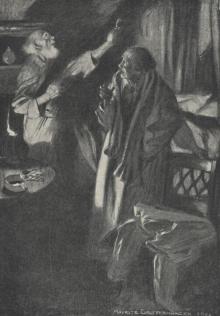 The Monkey's Paw
The Monkey's Paw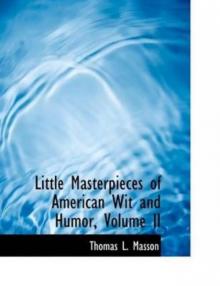 Little Masterpieces of American Wit and Humor, Volume II
Little Masterpieces of American Wit and Humor, Volume II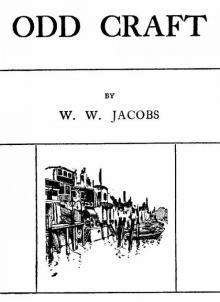 Odd Craft, Complete
Odd Craft, Complete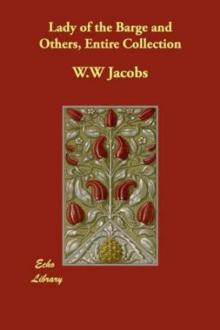 The Lady of the Barge and Others, Entire Collection
The Lady of the Barge and Others, Entire Collection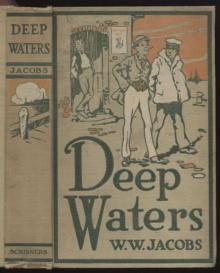 Deep Waters, the Entire Collection
Deep Waters, the Entire Collection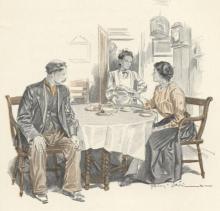 Three at Table
Three at Table Light Freights
Light Freights Night Watches
Night Watches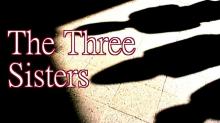 The Three Sisters
The Three Sisters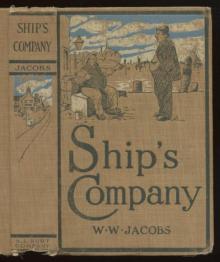 Ship's Company, the Entire Collection
Ship's Company, the Entire Collection His Lordship's Leopard: A Truthful Narration of Some Impossible Facts
His Lordship's Leopard: A Truthful Narration of Some Impossible Facts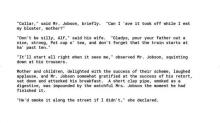 Fine Feathers
Fine Feathers My Man Sandy
My Man Sandy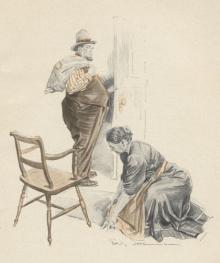 Self-Help
Self-Help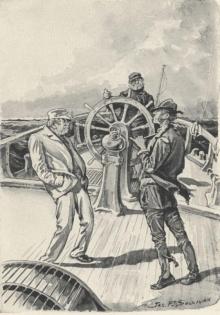 Captains All and Others
Captains All and Others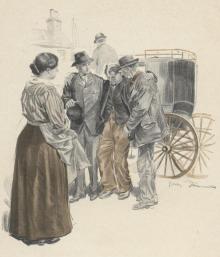 Back to Back
Back to Back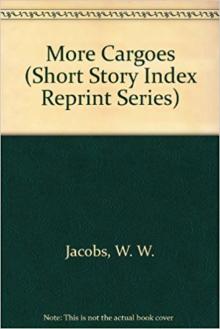 More Cargoes
More Cargoes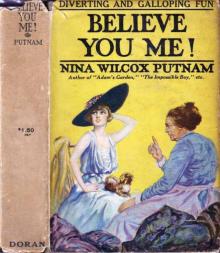 Believe You Me!
Believe You Me!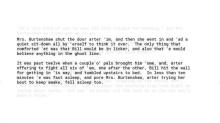 Keeping Up Appearances
Keeping Up Appearances The Statesmen Snowbound
The Statesmen Snowbound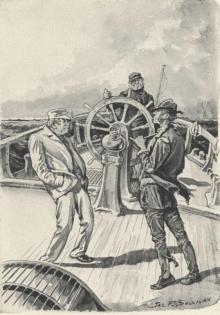 An Adulteration Act
An Adulteration Act The Old Soldier's Story: Poems and Prose Sketches
The Old Soldier's Story: Poems and Prose Sketches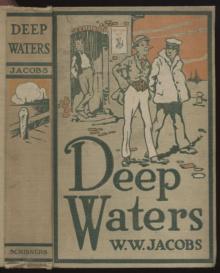 Husbandry
Husbandry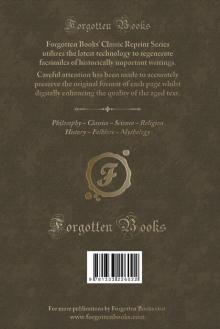 Love and the Ironmonger
Love and the Ironmonger The Old Man's Bag
The Old Man's Bag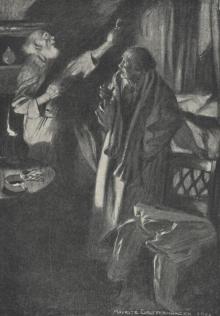 Dirty Work
Dirty Work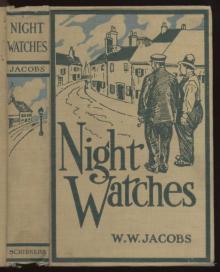 Easy Money
Easy Money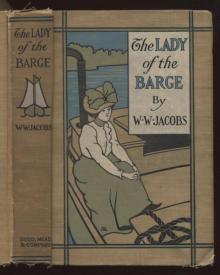 The Lady of the Barge
The Lady of the Barge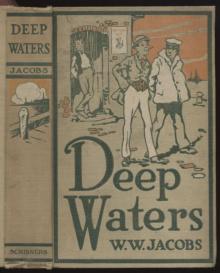 Bedridden and the Winter Offensive
Bedridden and the Winter Offensive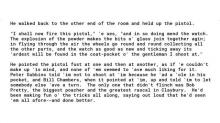 Odd Charges
Odd Charges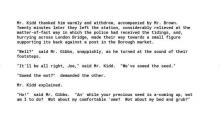 Friends in Need
Friends in Need Watch-Dogs
Watch-Dogs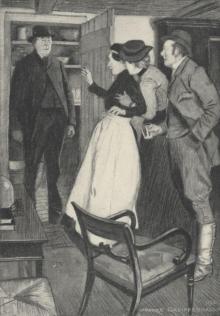 Cupboard Love
Cupboard Love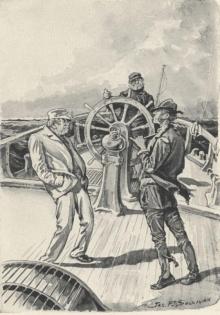 Captains All
Captains All A Spirit of Avarice
A Spirit of Avarice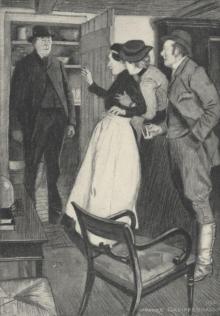 The Nest Egg
The Nest Egg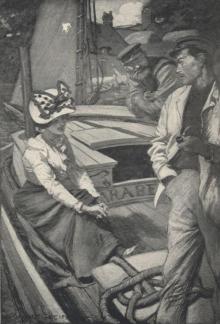 The Guardian Angel
The Guardian Angel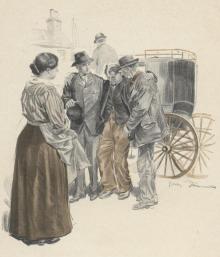 The Convert
The Convert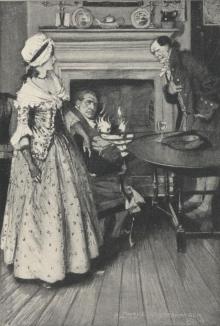 Captain Rogers
Captain Rogers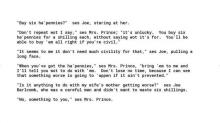 Breaking a Spell
Breaking a Spell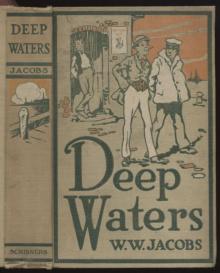 Striking Hard
Striking Hard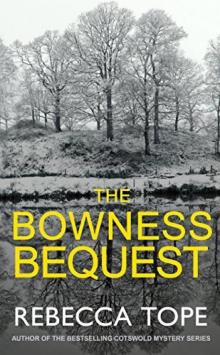 The Bequest
The Bequest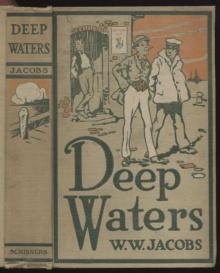 Shareholders
Shareholders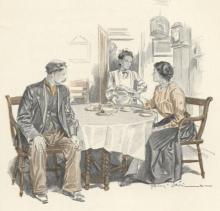 The Weaker Vessel
The Weaker Vessel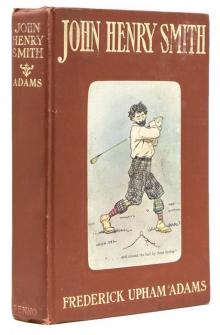 John Henry Smith
John Henry Smith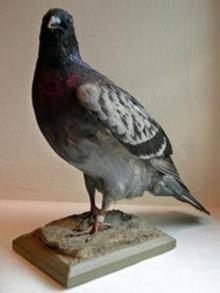 Four Pigeons
Four Pigeons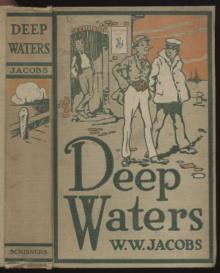 Made to Measure
Made to Measure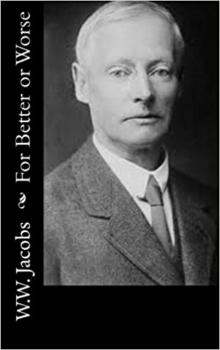 For Better or Worse
For Better or Worse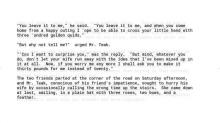 Fairy Gold
Fairy Gold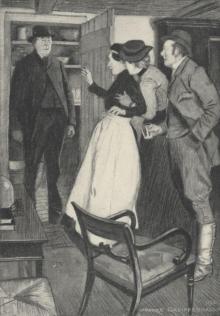 Family Cares
Family Cares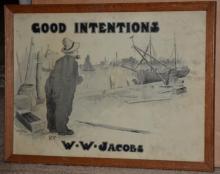 Good Intentions
Good Intentions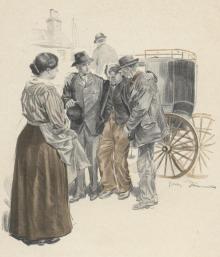 Prize Money
Prize Money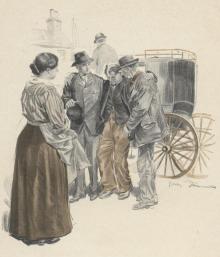 The Temptation of Samuel Burge
The Temptation of Samuel Burge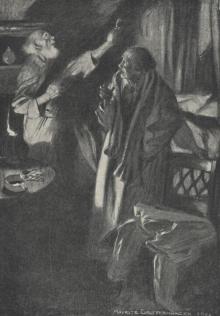 The Madness of Mr. Lister
The Madness of Mr. Lister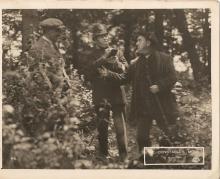 The Constable's Move
The Constable's Move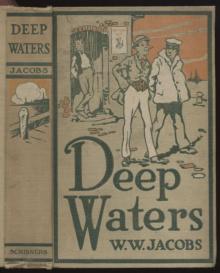 Paying Off
Paying Off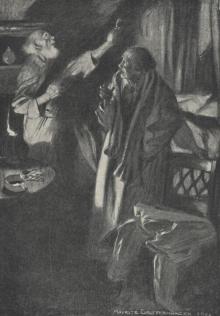 Double Dealing
Double Dealing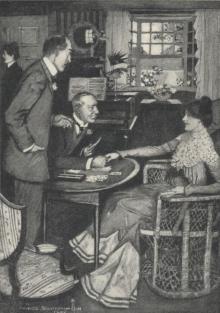 A Mixed Proposal
A Mixed Proposal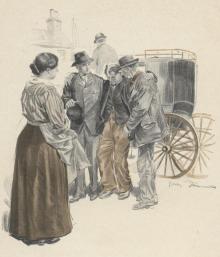 Bill's Paper Chase
Bill's Paper Chase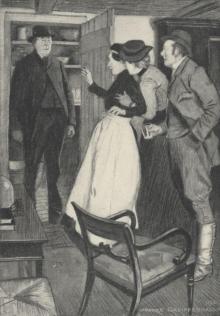 The Changing Numbers
The Changing Numbers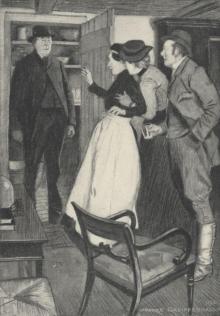 Over the Side
Over the Side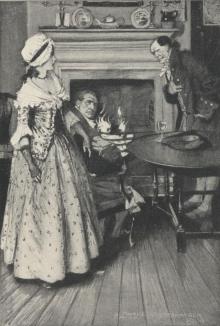 Lawyer Quince
Lawyer Quince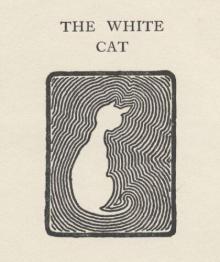 The White Cat
The White Cat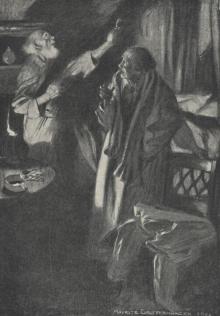 Admiral Peters
Admiral Peters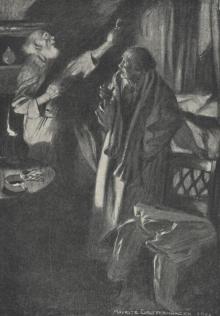 The Third String
The Third String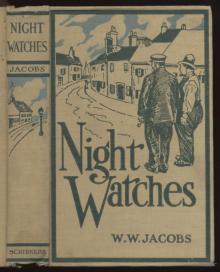 The Vigil
The Vigil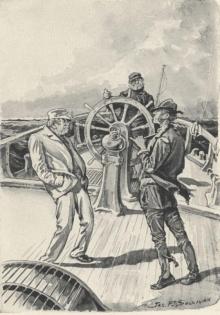 Bill's Lapse
Bill's Lapse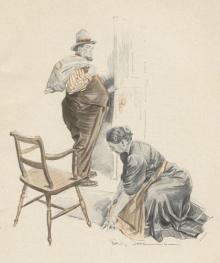 His Other Self
His Other Self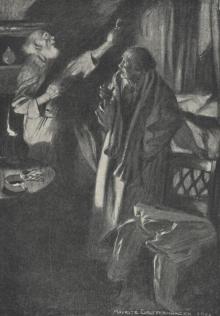 Matrimonial Openings
Matrimonial Openings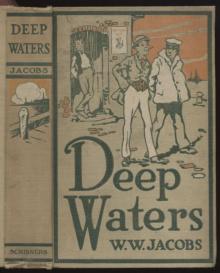 The Substitute
The Substitute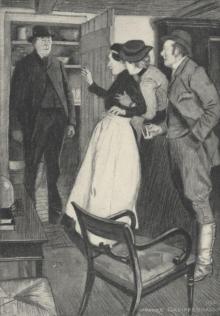 Deserted
Deserted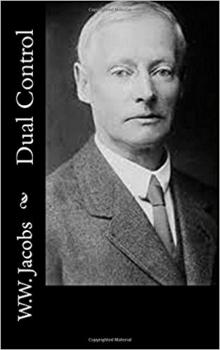 Dual Control
Dual Control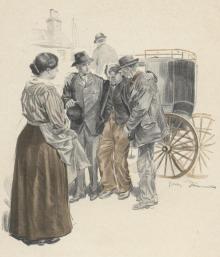 Homeward Bound
Homeward Bound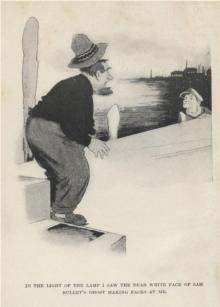 Sam's Ghost
Sam's Ghost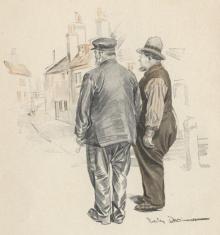 The Unknown
The Unknown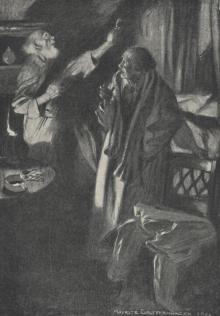 Stepping Backwards
Stepping Backwards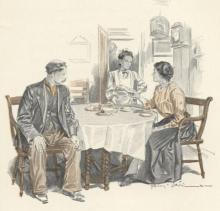 Sentence Deferred
Sentence Deferred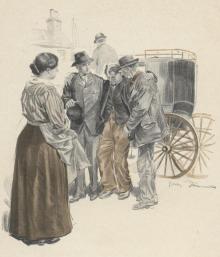 The Persecution of Bob Pretty
The Persecution of Bob Pretty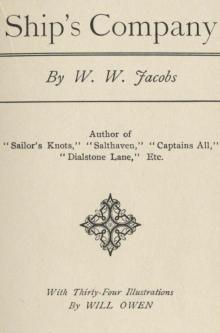 Skilled Assistance
Skilled Assistance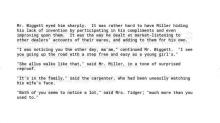 A Golden Venture
A Golden Venture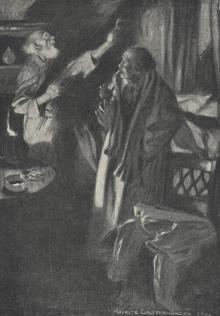 Establishing Relations
Establishing Relations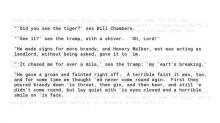 A Tiger's Skin
A Tiger's Skin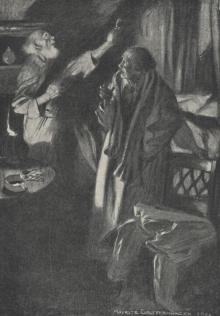 Bob's Redemption
Bob's Redemption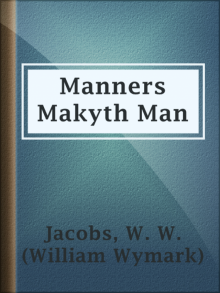 Manners Makyth Man
Manners Makyth Man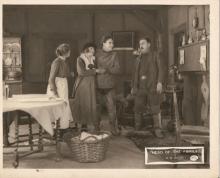 The Head of the Family
The Head of the Family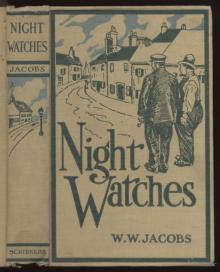 The Understudy
The Understudy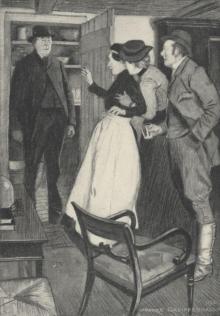 Odd Man Out
Odd Man Out Once Aboard the Lugger-- The History of George and his Mary
Once Aboard the Lugger-- The History of George and his Mary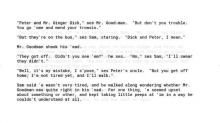 Peter's Pence
Peter's Pence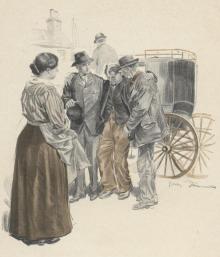 Blundell's Improvement
Blundell's Improvement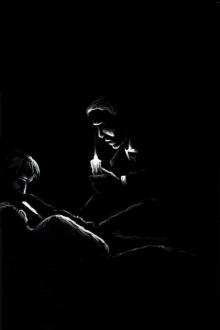 The Toll-House
The Toll-House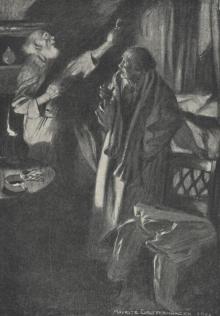 Dixon's Return
Dixon's Return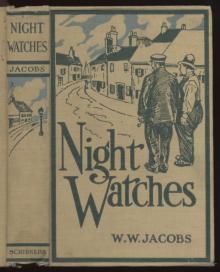 Keeping Watch
Keeping Watch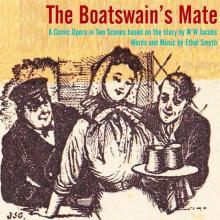 The Boatswain's Mate
The Boatswain's Mate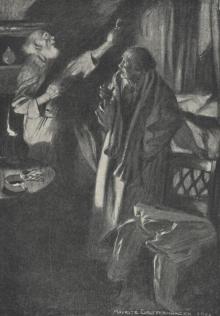 The Castaway
The Castaway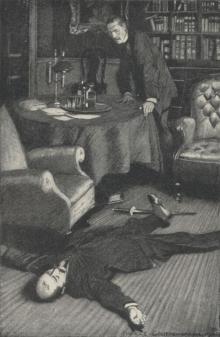 In the Library
In the Library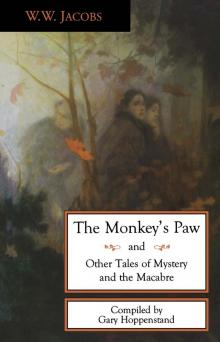 The Monkey's Paw and Other Tales Of Mystery and the Macabre
The Monkey's Paw and Other Tales Of Mystery and the Macabre